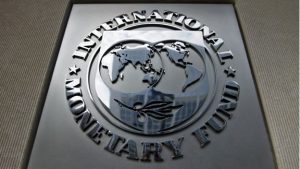Following the Federal Government’s plan to extend the fuel subsidy regime by 18 months, the International Monetary Fund (IMF) has said Nigeria will likely depend on overdrafts from the Central Bank of Nigeria (CBN) to fund its proposed N2.55tn petrol subsidy bill.
The IMF said this in its ‘Nigeria: Selected Issues Paper’ report, which was prepared by a staff team of the Fund as background documentation for its periodic consultation with Nigeria.
According to the report, fuel subsidy negatively affects the country’s fiscal position, increasing fiscal deficit.
The Washington-based lender said: “Implicit fuel subsidies have a significant negative impact on Nigeria’s fiscal position, which is estimated to increase the overall fiscal deficit by around one percentage point of the Gross Domestic Product in 2021.
“Despite much higher oil prices, the general government fiscal deficit is projected to be significantly worse at 6.3 per cent of the GDP, compared to 4.7 per cent of GDP in the 2020 Article IV staff report, mainly reflecting the reemergence of implicit fuel subsidies and higher spending in the supplementary budget for security and vaccine costs.”
It further stressed that the government would likely depend hugely on domestic financing sources, which include borrowing from the CBN, adding fuel subsidy has been a substantial burden on the country.
“Even though we assume that implicit fuel subsidies exist only until mid-2022, as stipulated in the Petroleum Industry Act and assumed in the draft 2022 budget, fiscal vulnerabilities remain elevated with public debt continuously increasing from 35 per cent of the GDP in 2020 to over 42 per cent in 2026.
“With limited IFI funding, fiscal financing for large implicit subsidy costs is likely to depend heavily on domestic sources, including overdrafts from the Central Bank of Nigeria. Thus, the recent re-emergence of implicit fuel subsidies has levied a considerable burden on the Nigeria’s fiscal position, that could have been spent more effectively on pro-poor interventions,” the report read.
Meanwhile, the World Bank had warned the Federal Government against financing its deficits by borrowing from the CBN through the Ways and Means Advances, stressing that it puts fiscal pressures on the country’s expenditures.
According to the bank, central bank financing and fuel subsidy regime tend to adversely affect investments in human and physical capital.
The Federal Government’s total borrowing from the CBN through Ways and Means Advances had ballooned by 2,286 per cent to N15.51tn in six years, according to the central bank data.
The N15.51tn owed by the Federal Government to the central bank is not part of the country’s total public debt stock, which stood at N38tn as of September 2021.
However, the Debt Management Office (DMO) said that it was working out a process of restructuring the overdrafts of the CBN for government financing to a long-term tenored debt.
Meanwhile, interest payments on Federal Government’s borrowing from the CBN through Ways and Means Advances had reportedly gulped N2.03tn in two years.
Also, in the monetary policy category of the CBN’s Frequently Asked Questions page on its website, it was disclosed that the Federal Government’s borrowing from the apex bank through its Means and Ways Advances could have adverse effects on the bank’s monetary policy to the detriment of domestic prices and exchange rates.
Meanwhile, the IMF further encouraged the government to remove fuel subsidy, stating that it would reduce income inequality.
The report further read in part, “Analysis shows that removing fuel subsidies would reduce income inequality. A fuel price increase to cost-recovery level would reduce households’ purchasing power, which calls for a distributional analysis of the impact by income groups, especially for poor households. Richer households tend to spend a larger share of their income on PMS than poorer households, while the share of kerosene expenditure is lower in richer households (above 80th income percentile). The price of kerosene—a cooking/heating fuel used mainly by poorer households—is higher than the subsidised price of PMS, which implies that the existing implicit fuel subsidy is ‘regressive’.
“Empirical studies have also supported that fuel subsidy is inequitable, finding that it is an extremely costly approach to helping the poor, with the top income quintile typically capturing six times more in subsidies than the bottom. Not surprisingly, the removal of fuel subsidies is therefore progressive.”
The Fund pointed out that there would be adverse impact on the poor if fuel subsidy was removed, but noted that the impact could be mitigated with a fraction of the fiscal resources used spent on the fuel subsidy.


